Having hot water on demand is one of life's greatest pleasures. Nothing beats a soak in hot water after a long and tiring work week. But what does it take to have hot water? How often does the water heater need to run so that we can enjoy this goodness whenever we want to? We've done the research, and here's what we found out.
A water heater runs for an average of three to five hours a day in a typical household. This will vary depending on the type of water heater, the number of people using hot water, the tank's storage capacity, its location, the temperature setting, and the efficiency of the unit.
Continue reading so we can tell you more about how many times your water heater needs to run within a day and, of course, how much energy it consumes. We'll also tell you what causes your water heater to keep turning off and the signs that you should watch out for to let you know that your water heater needs repair or replacing. Let's get started!
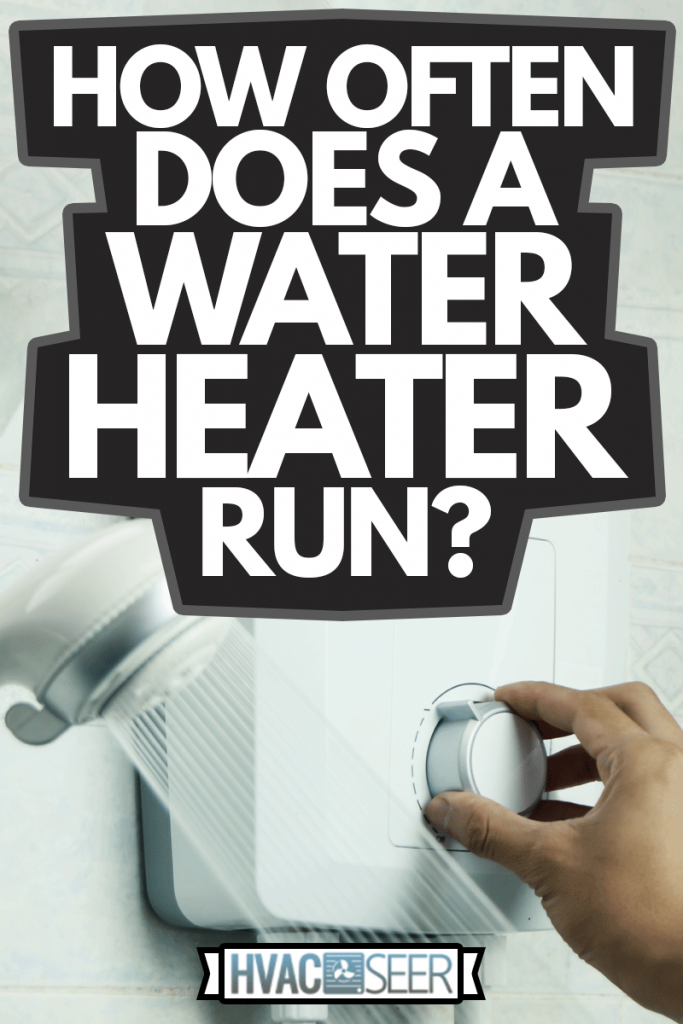
How many times a day does a hot water heater run?
Hot water heaters are very important in today's homes. Having hot water ready at all times makes dishwashing and laundry easier and more effective. It is also helpful when cooking. And best of all, you can say goodbye to cold and uncomfortable baths!
The most common water heater types are gas and electric. As their names imply, they are powered by gas and electricity, respectively.
They essentially work the same way. They are able to heat water with the help of a heating element. Water is heated according to your preferred temperature settings and then stored in the tank so that hot water is ready to come out of the pipe when needed.
Whenever hot water flows out of your faucet or shower, the water tank brings in cold water to replace the amount of water that was lost. The water heater again works to make sure that the water is hot enough according to the desired temperature so that there is a steady supply of hot water as the demand arises.
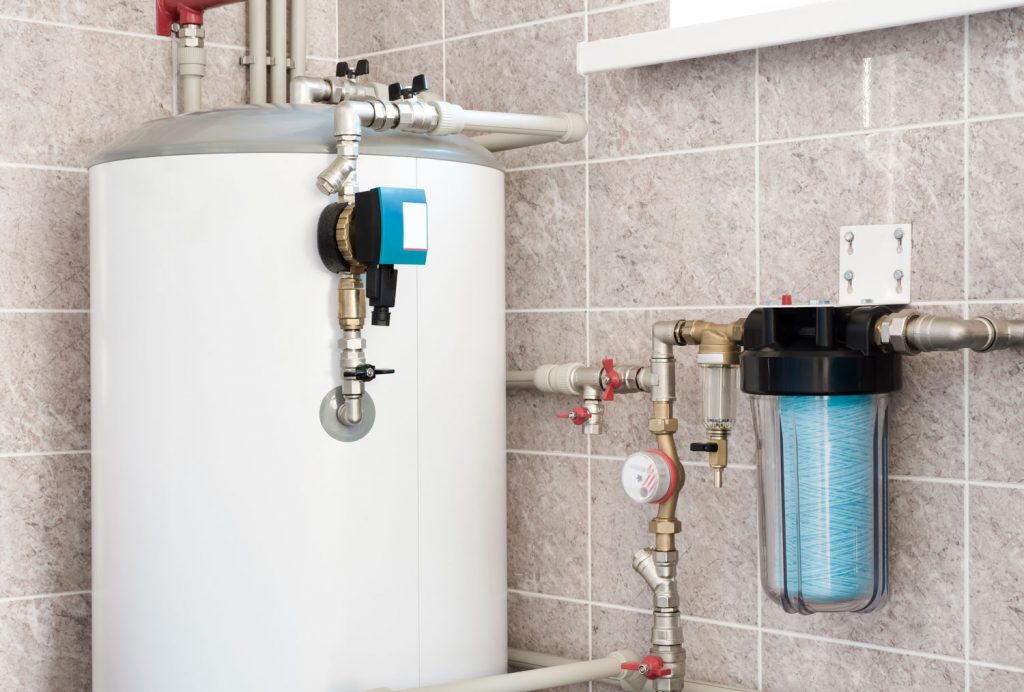
So, the water heater is not running all the time. It will only run whenever there's someone using the shower or faucet where hot water is released. In a typical household, the water heater is usually used for three to five hours a day.
The length of time that it's in use would depend on:
- the number of people using hot water,
- the storage capacity of the water tank,
- the type and efficiency of the appliance itself,
- the temperature setting,
- and the location of the water heater.
When your tank has a small capacity and many people are using hot water, then your water heater needs to work double-time to be able to meet the demand. When your temperature setting is higher, the heater will also work longer to reach the required temperature level. But it doesn't always have to be this way if your water heater is energy-efficient.
It usually takes 40 minutes for gas water heaters to make the water hot ,while electric heaters take longer, usually between 60 and 80 minutes, to heat the water inside the tank. If the water tank is placed in a cold area, it would take longer to reach the correct temperature.
How much energy does my water heater use?
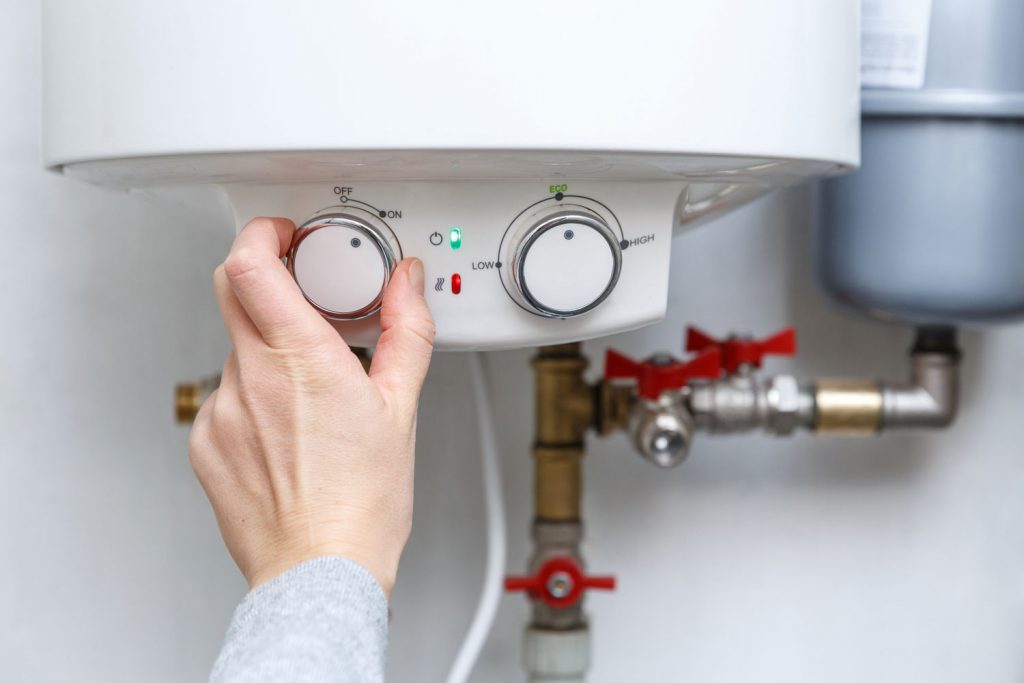
You might have heard that water heaters are one of the energy hoggers in your home. Well, there's truth to that. Water heaters account for 14% of your electricity usage since it is used quite often within the day for taking a shower, cooking, dishwashing, and doing laundry.
On average, water heaters operate for three to five hours a day. So, if your heater consumes 4,500 watts and you use it for three hours a day, and the electricity rate in your area is 12.52 cents, you'll pay $1.69 per day for your water heater for consuming 13.5 kWh. That'll be $50.7 for a month or $608.4 in a year for your water heater alone.
Of course, the amount would vary depending on the wattage of your unit, its type, age and size, temperature settings, and how much water is used, among others. This cost estimate will just give you a better understanding of this home appliance's energy consumption.
You can save up on energy costs by buying an energy-efficient heater or using a solar-powered one. Other helpful tips include putting an insulation jacket on older water heaters, covering your hot water pipes with pipe sleeves, and setting your heater's temperature to 120 degrees Fahrenheit or lower.
Check out these pipe sleeves on Amazon.
Experts also recommend that you turn off your water heater, especially when you're going on a vacation. When you leave the heater on, there's still a small amount of heat that escapes from it even when nobody's using it. That's a complete waste of energy. Turning the unit off will help you save up to 10% on energy costs.
What causes a water heater to keep turning off?
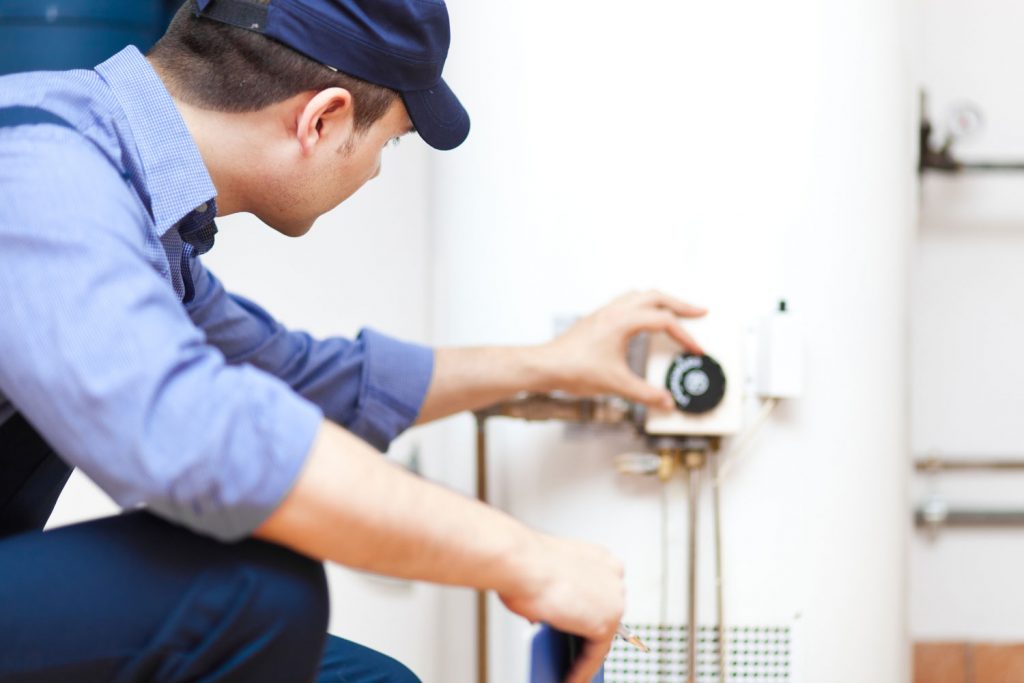
It is such a hassle when your water heater turns off when you're in the middle of a shower. How much more when it keeps on happening, right? Here are the possible reasons why your heater keeps turning off so that you can address this issue once and for all.
Electrical Glitch
If you have an electric water heater, probably there's an electrical glitch. You would need to contact your trusted electrical technician to identify the root cause of the problem. It could be the thermostat, heating coil, or there might be a short circuit in the breaker. That's why your heater shuts down each time it attempts to heat the water.
Gas Thermocouple Failing
If you have a gas water heater, there must be an issue with your thermocouple. This is a safety device in your heater. It senses when the pilot light is on and then lets the gas flow to the burner. When the light is off, it won't allow gas to pass through.
A failing thermocouple is usually the cause of gas water heater problems. The pilot light goes off; there's no gas in the burner, so there's no hot water.
You should call a plumber to have your gas heater checked. It could be that your thermocouple just needs cleaning,or it might need to be replaced altogether so that you can have your heater back in good working condition.
It's always best to have a professional take a look at your appliance so that you can be sure that it's safe to use and will perform as great as when it was brand new.
What are the signs that your hot water heater is going bad?
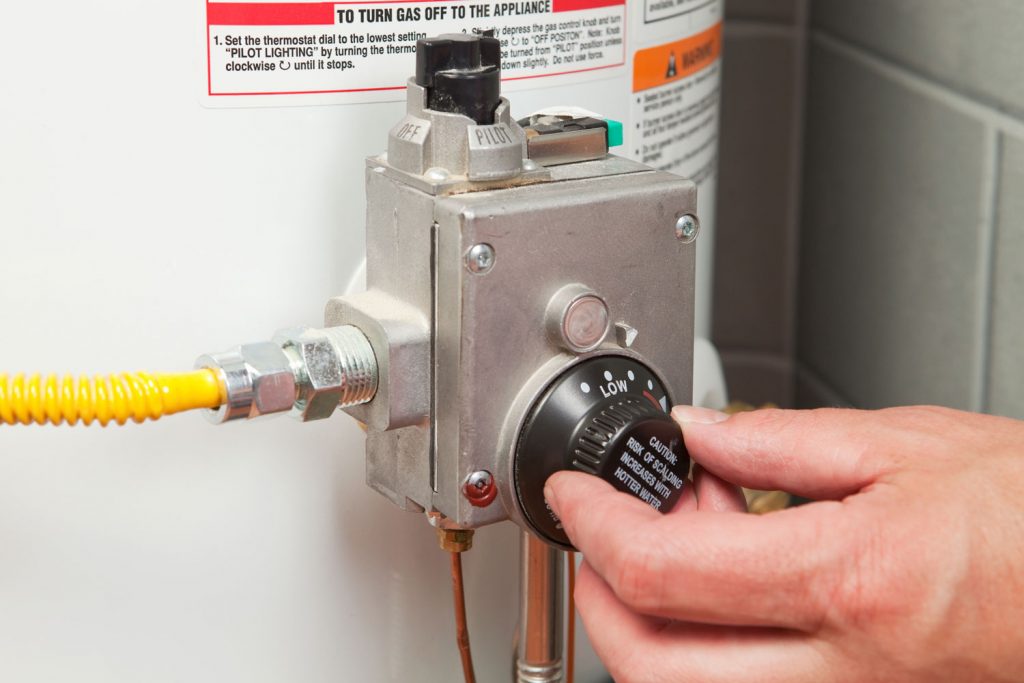
You should always be on the lookout for signs that your water heater is failing so you won't have to deal with the inconvenience of not having hot water, pay extra on your energy costs, or worst, suffer damages from a leaking or broken heater.
Here are the signs that you should watch out for:
- Water never heats up. Each time you turn on your shower or faucet, the water is cold or turns cold quickly.
- Fluctuating water temperature. The water that's coming out from your shower can be hot one moment then cold the next.
- Leaking water heating tank. You can see water pooling under the tank or dripping from the hot water pipes.
- Noises coming from the heater. You hear a loud rumbling, knocking, or clanging sound each time you use the water heater.
- Discolored water. This can be an indication of corrosion and rust inside the water tank.
- Low water pressure. There could already be a buildup of sediments that clogs your system.
These are just some of the symptoms that tell you that you need to have your water heater checked by a professional. Depending on the age of your unit, it may still be repaired by replacing damaged components. But if it has already served you for a decade, it might be more cost-effective to have the whole unit replaced and buy a water heater that's more energy-efficient and has the right size for your needs.
Final Thoughts
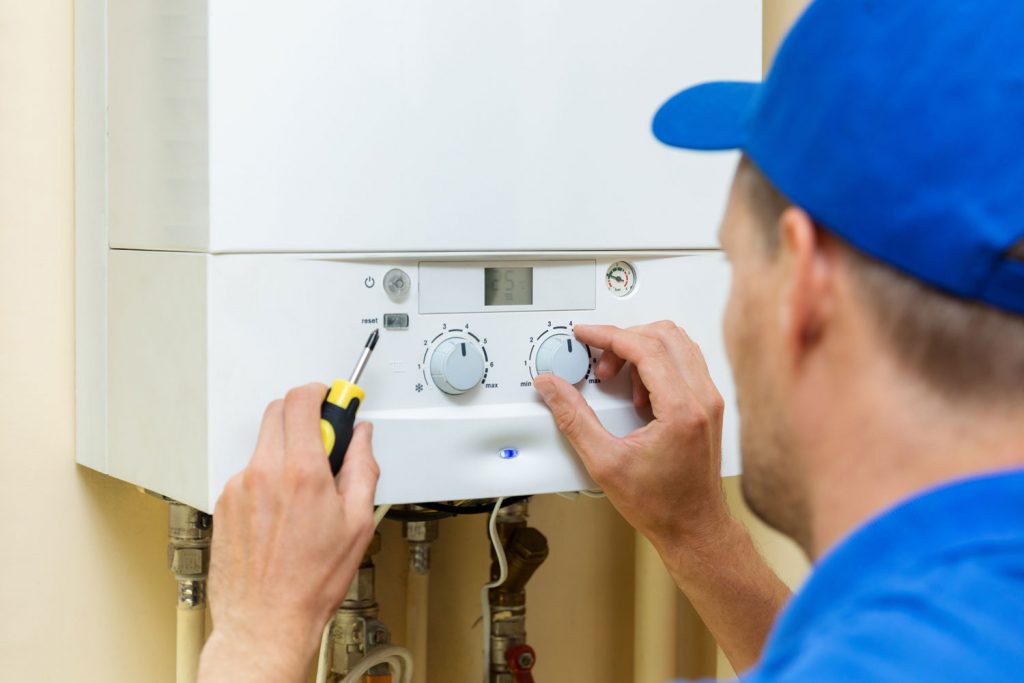
Water heaters run as long as there's a demand for hot water within the household. It could be for taking a bath, doing laundry, cooking, or dishwashing. They need to ensure that hot water is always ready for use to make our lives easier and more comfortable.
You can also visit the following links for some related reading:
Are The Water Heater And Furnace Connected
5 Electric Pool Heaters For Inground Pools

